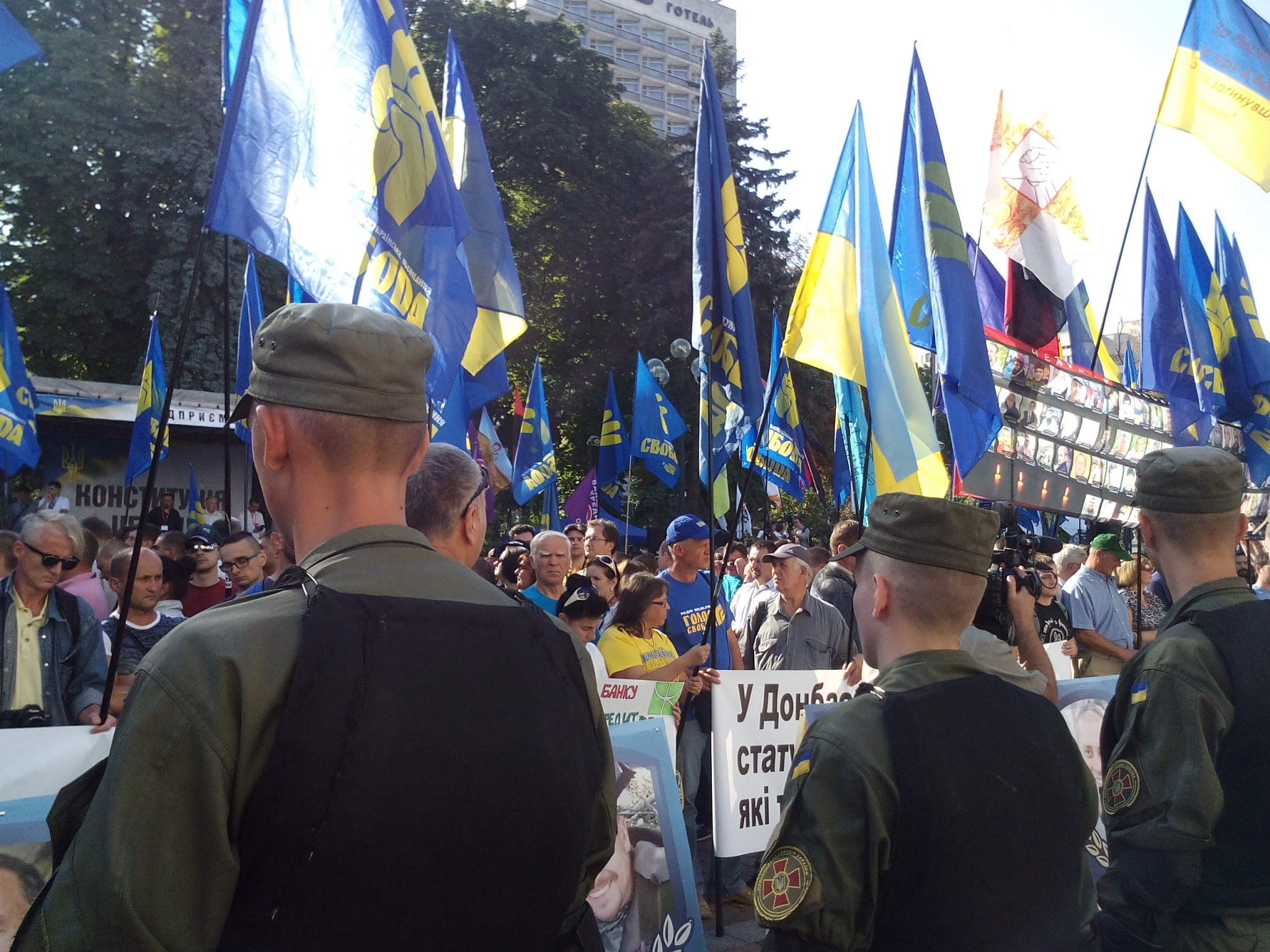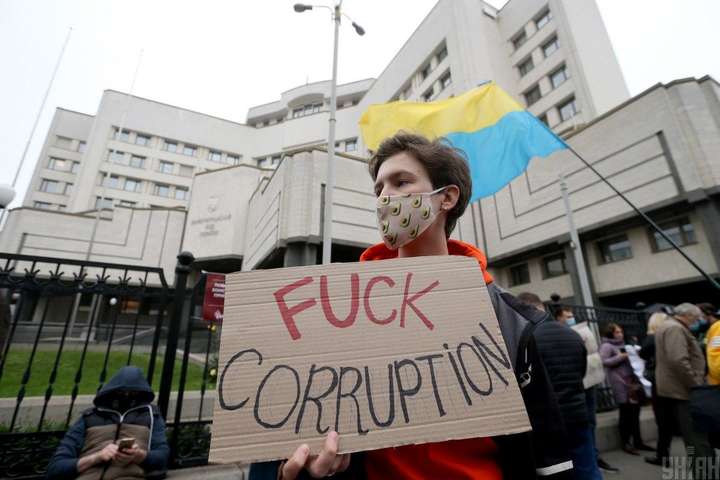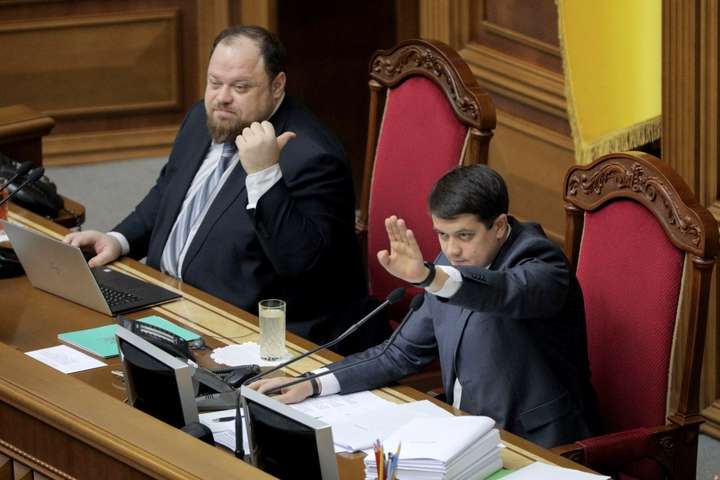On August 13, a number of scholars, diplomats, writers, politicians, and Constitutional Court judges openly appealed to President Poroshenko and the Verkhovna Rada to put a moratorium on changes to the Constitution in the section on decentralization -- namely, the paragraph dealing with the specifics of self-government in certain regions of the Donetsk and Luhansk oblasts.
The list of more than 30 well-known public figures who signed the petition includes: Dmytro Pavlychko, poet and culturologist; Yuriy Shcherbak, writer and diplomat, Myroslav Popovych, academician; Viacheslav Briukhovetskyi, former president of the National University of Kyiv-Mohyla Academy; Viktor Shyshkin, former Constitutional Court judge; Mykola Koziubra, former Constitutional Court judge; Volodymyr Ohryzko, diplomat; Bohdan Yaremenko, diplomat; Stepan Khmara, politician and Soviet dissident; Levko Lukianenko, politician and Soviet dissident; Taras Stetskiv, politician, and others.
"This is Putin's plan to secure and legitimize the Russian enclave on Ukrainian territory that will become a source of destabilization and gradual destruction of the Ukrainian state," said Stepan Khmara, recognized Hero of Ukraine and former political prisoner. "Our task is to destroy this plan and not allow for the Constitution to be changed under any circumstances. We therefore appeal to all patriots not to allow this crime because it calls for our surrender, only in other words. Our Western partners want to get rid of the conflict in Eastern Europe at the expense of our national interests. Attempts to change the Constitution today are a threat to our sovereignty," he concluded.
According to the signatories of the petition, the main justification for the moratorium is found in paragraph 2 of Article 157 of the Constitution which states that the Constitution cannot be amended under conditions of war or a state of emergency.
Former Constitutional Court judge Viktor Shyshkin believes that conditions for a state of war that would preclude changes to the constitution already exist. "In society there is a debate whether the conditions for a state of war exist. I believe they do, and I expressed my thoughts in my dissenting opinion on June 16," he said. "And these conditions are not only real but also legal. I cited more than 70 regulations, including 15 resolutions, 15 presidential decrees, and other decisions by the highest authorities. If we also include the subordinate acts, then they number more than a hundred. All of them point to the legal basis for the existence of a state of war. The fact that the president has not declared it by decree is evidence that he is not performing his duties as president and as commander-in-chief properly," Shyshkyn concluded.
The civic leaders who signed the appeal are demanding that the president withdraw his bill or that the Verkhovna Rada not include it in its agenda. They say that another approach would be to exclude the clause on the specifics of self-government in certain regions of the Donbas and resend the amendment bill to the Constitutional Court.
The proposed amendments to the Constitution in the section on decentralization, specifically in paragraph 18 of the transitional provisions, specify that the specifics of local self-government in certain regions of the Donetsk and Luhansk oblasts will be defined by a separate law.
However, President Poroshenko insisted in his speech before the vote that the amendments do not provide for a special status for the Donbas.
On July 31, the Constitutional Court of Ukraine ruled that the bill on the amendments to the Constitution in the section dealing with decentralization of power meets the requirement of the basic law and that the bill complies with Articles 157 and 158 of the Constitution.
On July16, Verkhovna Rada voted by a 288-57 majority to send the president's bill on amendments to the sections in the Constitution on decentralization to the Constitutional Court for review. After the decision of the Constitutional Court, the bill will now go back to Verkhovna Rada, where it will need at least 300 votes for adoption.
The government wants the deputies to approve the bill before local elections on October 25.
The bill provides for the decentralization of power to local authorities, who will be responsible for collecting taxes and allocating budgets. Current administrations on the oblast and raion (district) level would be eliminated, and the government would be represented locally through a system of prefects.





